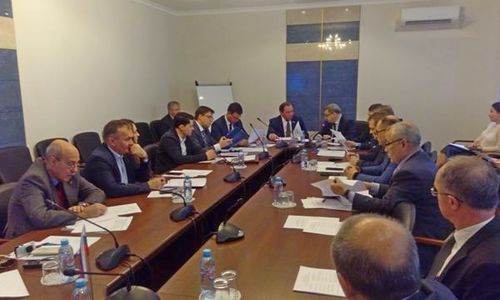ÐÎÑÑÈÉÑÊÈÉ ÏÐÎÔÅÑÑÈÎÍÀËÜÍÛÉ ÑÎÞÇ ÌÎÐßÊÎÂ
SEAFARERS' UNION OF RUSSIA
A NON-UNIONIZED SEAFARER
IS AN UNPROTECTED SEAFARER
Back
The SUR asked for clarification of the rules by which the Government of the Russian Federation will be able to issue permission to use foreign vessels for certain types of work

When adopting new laws to stimulate the construction of ships at Russian shipyards, their use and supply with Russian equipment, it is necessary to avoid legal uncertainty and excessive financial burdens on shipowners. Such conclusions were reached by experts of the section on sea and river transport at the State Duma Committee on Transport and Construction held on November 18. The chief legal expert of the Seafarers Union of Russia Valery Nefedov took part in their work.
New norms of domestic shipbuilding
So vessels that were built before the adoption of the Government Decree No. 719 which requires the mandatory volume of components produced in the Russian Federation may not be allowed to coasting trade. The bill in question relating to certain types of work the implementation of which is possible exclusively with the use of vessels built on the territory of the Russian Federation.According to the shipping community this discriminates against the Russian flag and neutralizes the effect of Federal Law No. 305 on supporting shipbuilding, because they work under the flag of the Russian Federation and a lot of money was invested in their construction at Russian shipyards.“For the business at the moment such an artificial criterion is harmful as it creates legal uncertainty,” the Russian Chamber of Shipping believes.The meeting participants drew attention to the fact that the requirements of the Governmental degree No. 719 which come into force in 2019 can be fulfilled, but there is no such certainty in the positions that have been signed for execution since 2022.The government argues its position with the fact that the bill is aimed specifically at the development of domestic shipbuilding so that there are no situations when a Russian shipyard wins a tender for building a ship and then places an order at a foreign shipyard. “For the period from 2012 to 2017 1116 vessels were put in service in our country. 239 of them are intended for inland waterways and 877 for sea areas”the ministry quotes such statistics.During lively discussion representatives of the shipping community emphasized that they were not against import substitution in related industries, but it was better to achieve this goal by adopting a separate state program on import substitution of component equipment and only as it was implemented to introduce some prohibition criteria and norms.
When can a “foreigner” be allowed to work?
Meanwhile the SUR asked for clarification of the rules by whichthe Russian government will be able to issue permission to use foreign vessels for certain types of work. This is a bill relating to certain types of work, the implementation of which is possible exclusively with the use of ships built on the territory of the Russian Federation.The SUR chief legal expert Valery Nefedov emphasized that the current version of this norm, unlike the previous one, does not contain any references to the cases and the order in which the Government of the Russian Federation issues such permissions:Judging by the fact that the current version of the Merchant Shipping Code norm does not indicate the need for such conditions and procedures. So when the Government of the Russian Federation gives permission to foreign vessels to be used in coastal shipping such decisions are seems to be made arbitrarily, which is unacceptable, since it leads to infringement of the rights of Russian shipowners and Russian seafarers, explained Valery Nefedov.
He also drew attention to the fact that, taking into account the requirements of the Labor Code of the Russian Federation (Article 35.1) and the Federal Law On the Russian Tripartite Commission for the Regulation of Social and Labor Relations, this bill needs to be submitted for consideration to Labour Trading Commission, since, in particular, it affects the interests of seafarers on employment and creates tension in the national maritime labor market, and therefore needs to be adjusted accordingly. He was supported by the president of the Russian Chamber of Shipping, Alexei Klyavin.It is assumed that the position on both bills submitted for expert discussion today will be determined in the near future by the relevant State Duma committee on transport and construction.
According to the news of the “Sea News of Russia” site
Up
